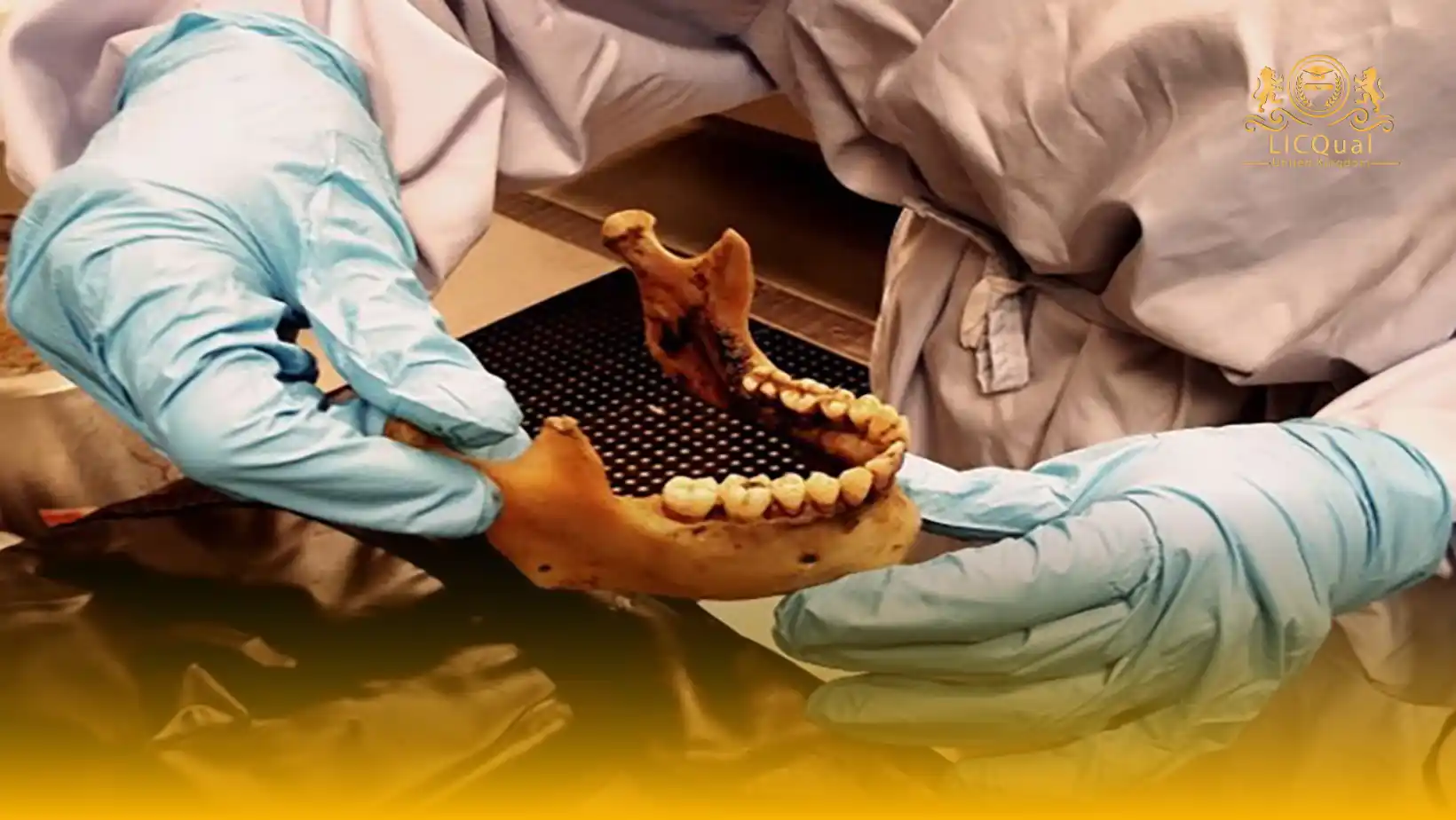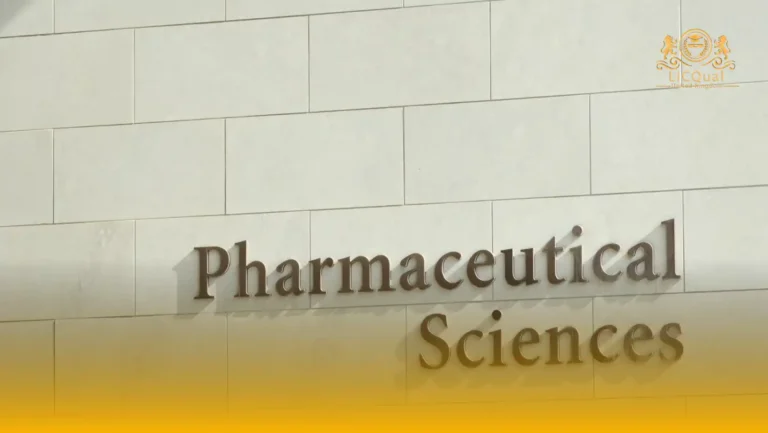The LICQual Level 6 Diploma in Forensic Odontology (Dip Forensic Odontology) is a specialised qualification designed for dental and forensic professionals seeking to advance their expertise in the identification and analysis of dental evidence. This qualification is not intended for fresh graduates but for experienced practitioners who wish to enhance their career prospects, expand their knowledge, and demonstrate commitment to Continuing Professional Development (CPD).
This advanced diploma provides learners with an in-depth understanding of forensic odontology principles, including dental identification, bite mark analysis, age estimation, and the role of dental evidence in legal investigations. Through a combination of theoretical knowledge and practical application, learners develop the skills required to analyse forensic dental cases accurately, support legal proceedings, and contribute to multidisciplinary forensic investigations. The curriculum is carefully designed to cover all aspects of forensic dental practice, ensuring learners gain comprehensive knowledge and practical competence.
Centres delivering this qualification must meet stringent standards to ensure high-quality training and learner success. They are required to employ competent and qualified staff with specialist expertise in forensic odontology and related fields. Additionally, centres must provide learners with access to fully equipped forensic laboratories, diagnostic tools, and up-to-date learning resources, supporting both theoretical understanding and practical skill development.
By completing this diploma, learners not only enhance their professional capabilities but also strengthen their credibility within forensic and dental practice. The qualification equips learners to apply advanced forensic techniques confidently, integrate evidence-based practices into their work, and maintain the highest standards of professionalism and accuracy in forensic investigations.
Course Overview
Qualification Title
LICQual Level 6 Diploma in Forensic Odontology (Dip Forensic Odontology)
Total Units
6
Total Credits
120
GLH
480
Qualification #
LICQ2200683
Qualification Specification
To enroll in the LICQual Level 6 Diploma in Forensic Odontology (Dip Forensic Odontology) , applicants must meet the following criteria:
|
Qualification# |
Unit Title |
Credits |
GLH |
|---|---|---|---|
|
LICQ2200683-1 |
Principles of Forensic Odontology |
20 |
80 |
|
LICQ2200683-2 |
Human Identification and Dental Records |
20 |
80 |
|
LICQ2200683-3 |
Bite Mark Analysis and Injury Interpretation |
20 |
80 |
|
LICQ2200683-4 |
Age Estimation and Skeletal Analysis |
20 |
80 |
|
LICQ2200683-5 |
Advanced Forensic Case Management |
20 |
80 |
|
LICQ2200683-6 |
Research, Evidence-Based Practice, and Professional Development |
20 |
80 |
By the end of this course, learners will be able to:
Unit 1: Principles of Forensic Odontology
- Demonstrate a comprehensive understanding of forensic odontology principles, legal frameworks, and ethical responsibilities.
- Analyse the role of dental evidence in forensic investigations and legal proceedings.
- Evaluate professional standards and ethical considerations in forensic practice.
- Apply theoretical knowledge to support accurate and ethical forensic dental practice.
Unit 2: Human Identification and Dental Records
- Demonstrate competence in using dental records, charting, and radiographic comparisons for human identification.
- Analyse methods for accurate identification and documentation of dental evidence.
- Evaluate the reliability and validity of forensic reporting techniques.
- Apply identification skills effectively in practical forensic casework.
Unit 3: Bite Mark Analysis and Injury Interpretation
- Demonstrate advanced skills in recognising and analysing bite marks and oral injuries.
- Analyse patterns and measurements to support forensic investigations.
- Evaluate the evidential value of bite marks in court proceedings.
- Apply practical techniques to produce accurate and admissible forensic reports.
Unit 4: Age Estimation and Skeletal Analysis
- Demonstrate knowledge of age estimation techniques using dental and skeletal evidence.
- Analyse developmental stages, dental morphology, and skeletal indicators.
- Evaluate the reliability and limitations of age estimation methods.
- Apply analytical skills to determine age accurately in forensic investigations.
Unit 5: Advanced Forensic Case Management
- Demonstrate the ability to manage complex forensic odontology cases, including mass disaster scenarios.
- Analyse multidisciplinary collaboration and evidence handling procedures.
- Evaluate strategies for presenting dental evidence in court.
- Apply professional knowledge to deliver comprehensive forensic case management.
Unit 6: Research, Evidence-Based Practice, and Professional Development
- Demonstrate understanding of research methodology and evidence-based practice in forensic odontology.
- Analyse and critically appraise scientific literature for clinical and forensic applications.
- Evaluate reflective practice to support professional growth and Continuing Professional Development (CPD).
- Apply research findings and evidence-based strategies to improve forensic practice.
The LICQual Level 6 Diploma in Forensic Odontology (Dip Forensic Odontology) is designed for dental professionals, graduates, and healthcare practitioners who want to specialize in forensic dentistry and dental evidence analysis. This Forensic Odontology Level 6 diploma is ideal for those seeking to enhance their expertise in bite mark analysis, age estimation, and human identification. Whether you are a practicing dentist, an academic, or an international professional, this accredited Forensic Odontology diploma provides the skills, recognition, and flexibility to advance your career in this unique field.
1. Practicing dentists seeking forensic expertise
- Dentists aiming to specialize in forensic dentistry and investigations
- Professionals who want to expand their role in legal and criminal cases
- Those interested in earning a recognized Dip Forensic Odontology qualification
- Practitioners focusing on bite mark analysis and dental evidence
- Dentists looking to enhance credibility through advanced forensic training
2. Recent dental graduates
- Graduates who want to specialize early in Forensic Odontology
- Students seeking a postgraduate diploma to boost their career profile
- Young dentists aiming to stand out in a competitive dental job market
- Learners looking for flexible online Forensic Odontology courses
- Professionals aiming for international recognition in forensic science
3. International dental professionals
- Dentists from Pakistan, UK, Middle East, and other regions
- Professionals seeking a globally accredited Forensic Odontology diploma
- Those who prefer flexible online study options
- Practitioners aiming to meet international forensic dentistry standards
- Dentists looking to expand career opportunities abroad
4. Dental specialists expanding skills
- Prosthodontists, orthodontists, and endodontists adding forensic expertise
- Specialists aiming to broaden diagnostic and investigative capabilities
- Professionals seeking continuing professional development (CPD)
- Those who want to integrate forensic odontology into their practice
- Dentists pursuing multi‑disciplinary collaboration with legal authorities
5. Academic and teaching professionals
- Dental educators seeking updated forensic odontology knowledge
- Academics aiming to strengthen teaching and research credentials
- Trainers who want to mentor future forensic dentists
- Researchers looking for internationally recognized qualifications
- Educators seeking evidence‑based forensic dentistry training
6. Healthcare and legal professionals
- Physicians and allied health staff interested in forensic applications
- Legal professionals collaborating with forensic dentistry experts
- Community health workers supporting forensic identification programs
- Professionals working in disaster victim identification teams
- Those seeking interdisciplinary forensic healthcare knowledge
7. Career‑focused dental practitioners
- Dentists aiming for career advancement in Forensic Odontology
- Professionals looking to increase recognition and credibility
- Practitioners seeking higher earning potential through specialization
- Dentists preparing for leadership roles in forensic and academic fields
- Professionals committed to lifelong learning and excellence
- Qualified and Competent Staff
Employ experienced and appropriately qualified dental and forensic educators with specialist knowledge in forensic odontology, case management, and legal procedures. - Clinical and Laboratory Facilities
Provide fully equipped clinical and forensic laboratory areas that allow learners to safely practise identification techniques, bite mark analysis, and skeletal examination. - Access to Required Materials and Equipment
Ensure availability of all necessary forensic tools, dental materials, protective gear, imaging equipment, and learning resources to support practical training. - Teaching and Learning Resources
Provide access to up-to-date textbooks, journals, digital platforms, and research materials to support theoretical learning and evidence-based forensic practice. - Compliance with Health and Safety Standards
Adhere to all relevant infection control, safety, and clinical governance regulations to maintain a professional and secure learning environment. - Assessment and Quality Assurance
Implement robust systems to monitor learner progress, conduct assessments, and maintain quality assurance in line with international standards. - Support for Learners’ Continuing Professional Development (CPD)
Encourage and facilitate CPD, enabling learners to apply advanced forensic odontology knowledge and skills effectively in professional practice.
Assessment and Verification
All units within this qualification are subject to internal assessment by the approved centre and external verification by LICQual. The qualification follows a criterion-referenced assessment approach, ensuring that learners meet all specified learning outcomes.
To achieve a ‘Pass’ in any unit, learners must provide valid, sufficient, and authentic evidence demonstrating their attainment of all learning outcomes and compliance with the prescribed assessment criteria. The Assessor is responsible for evaluating the evidence and determining whether the learner has successfully met the required standards.
Assessors must maintain a clear and comprehensive audit trail, documenting the basis for their assessment decisions to ensure transparency, consistency, and compliance with quality assurance requirements.







